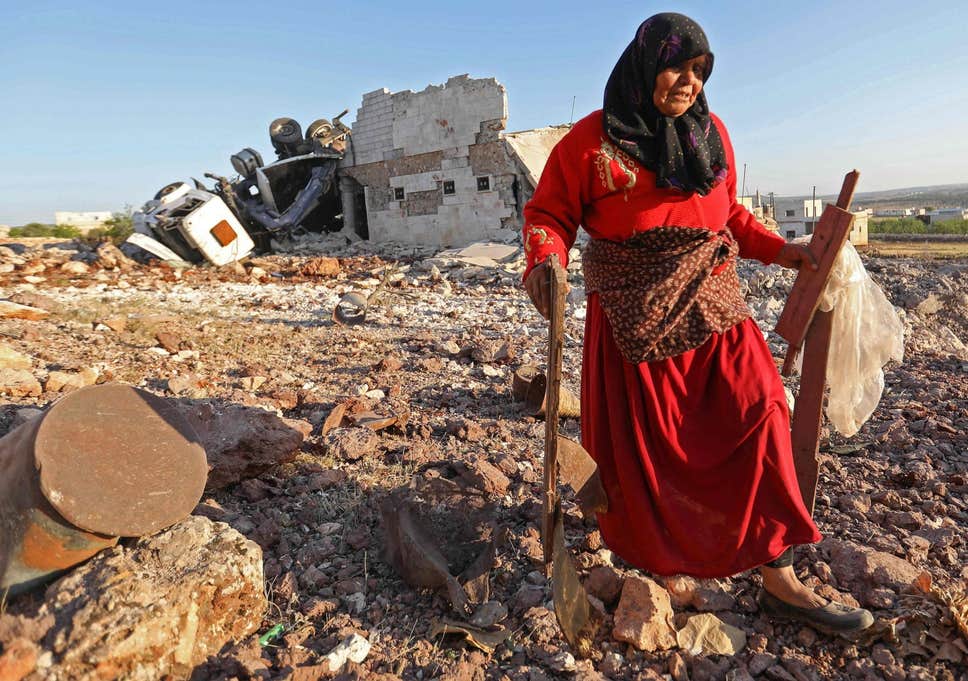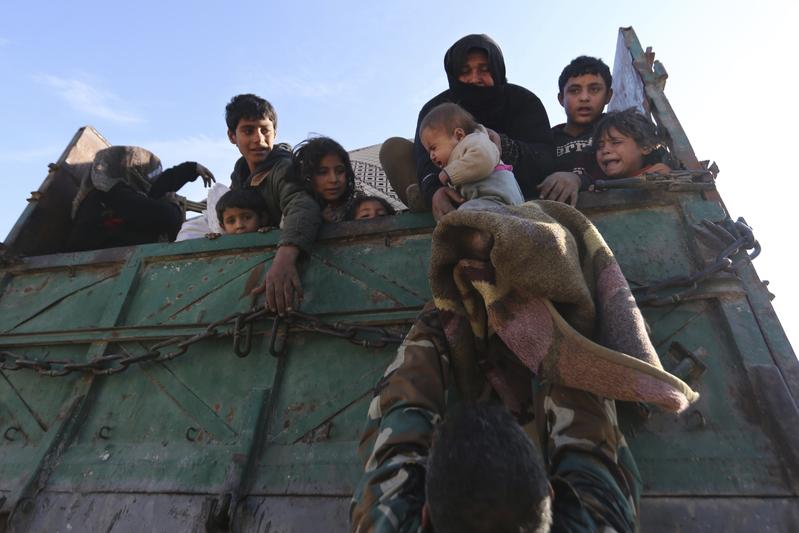Assad renews attempts to oust rebels, thousands of civilians flee northwest Syria

A few minutes every morning is all you need.
Stay up to date on the world's Headlines and Human Stories. It's fun, it's factual, it's fluff-free.
Government-backed troops, aided by Russian airpower, pushed into Idlib province, one of the last rebel-held territories in Syria, on Monday, January 27.
As Syrian President Bashar al-Assad’s forces closed in on the territory, many thousands of civilians were forced to evacuate – most of them heading north to reach the border with Turkey.
Large swaths of the province, which is situated southwest of the city of Aleppo, have been controlled by anti-government rebels since 2012. The civil war has seen a number of pro- and anti-government factions arise. These have included terrorist groups like the Islamic State in Iraq and Syria (ISIS). Whereas, in Idlib province, rebel leaders are aligned with al-Qaeda-linked militants.
During the course of the country’s civil war, which has raged for some nine years, Assad has fought off and reclaimed most of the territory held by anti-government forces.
Humanitarian crisis
However, dire human rights breaches and an ongoing refugee crisis haunt the government’s efforts. As one of the last strongholds against Assad’s government forces, millions of Syrians have fled to Idlib Governorate for protection over the past several years. Around three million civilians are living in the province.
Now, the government’s raid is leading to a civilian exodus. According to Mustafa Haj Youssef, director of the White Helmets, a volunteer rescue organization, the offensive is upending many lives in the province.
“You cannot imagine the number of people leaving their houses in the southern countryside of Idlib, heading northward,” he said. Turkey is already home to some 3.5 million Syrian refugees.

Assad’s endgame
On January 12, 2020, a cease-fire was signed between Turkey and Russia – who had back different factions in the Syrian civil war. The deal, however, was broken just two days after being signed. Syria has in the past endured a host of promised cease-fires, only to see them melt away.
Throughout the civil war, Assad forged partnerships with a number of outside forces – notably Russia – to help support his offensive capabilities. This has helped Assad gain the upper hand militarily over rebel factions – although the nine years of war have left the country with decimated national institutions.
Some analysts argue that the city of Damascus has become fully dependent on outside influence and intervention, and that there is little chance Assad can sustain a functioning government without continued international help – even if rebels are fully defeated.
[article_ad]




Comments ()